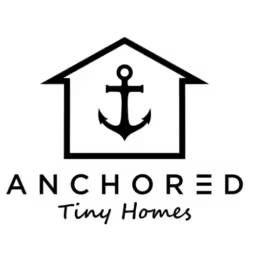Anchored Tiny Homes specializes in the design, sale, and installation of custom tiny home accessory dwelling units. The franchise provides affordable and sustainable living solutions for customers looking for small, efficient homes.

Key Insights
- Anchored Tiny Homes emerged when founders recognized significant opportunities to transform traditional service delivery methods within their market, developing innovative approaches that addressed specific customer pain points and established new standards for quality and reliability in the industry.
- Client relationships develop through responsive communication, reliable service delivery, and consistent achievement of promised outcomes, building trust and satisfaction that leads to repeat business and positive referrals while maintaining professional standards and accountability.
- Industry trends favor businesses that can adapt quickly to changing regulations, customer preferences, and market conditions while maintaining quality standards, creating competitive advantages for organizations that invest in training, technology, and customer-focused service approaches.

Franchise Fee and Costs to Open
Exploring the financial picture of Anchored Tiny Homes gives insight into both the upfront commitment and the potential revenue opportunity. According to FDD Item 7, opening this franchise typically involves an investment in the range of $113,751 - $245,000, along with a franchise fee of $59,500 - $119,500.
Financial Performance and Revenue
Yearly gross sales of $1,706,505 and estimated earnings of $238,911 - $307,171 show the potential financial performance of this franchise. These figures are crucial for prospective franchisees as they help to project revenue and profitability. They offer insight into the business's ability to generate income and can be used to compare its performance against other investment opportunities. The Franchise Payback Period of 1.2-3.2 provides an estimation of the time it might take for an owner to recover their initial investment. This metric is a key consideration for anyone evaluating the financial viability of a franchise, as it relates directly to the speed at which the business can become profitable. A shorter payback period can indicate a faster return on capital, which is a significant factor in making an informed decision about a franchise investment.
Training and Resources
Anchored Tiny Homes provides comprehensive initial training for new franchisees. This program offers hands-on experience and covers essential business operations. The training is for two weeks and is conducted at the franchisor's headquarters. Anchored Tiny Homes also offers a suite of resources and ongoing support to assist franchisees in establishing and growing their businesses.
Legal Considerations
Legal considerations for a Anchored Tiny Homes franchisee are defined by the Franchise Disclosure Document (FDD) and the Franchise Agreement. This franchise does not disclose lawsuits or bankruptcy information in its FDD, but prospective franchisees should still review all terms thoroughly. Consultation with a qualified attorney is essential before making commitments.
Challenges and Risks
Franchisees might navigate varied local competition for housing solutions, requiring a tailored approach to marketing and sales. Operational complexity arises in managing construction timelines, site preparation, and client communication throughout the building process. Reliance on specific suppliers for specialized tiny home components and materials presents a consideration for maintaining production flow and cost management.



